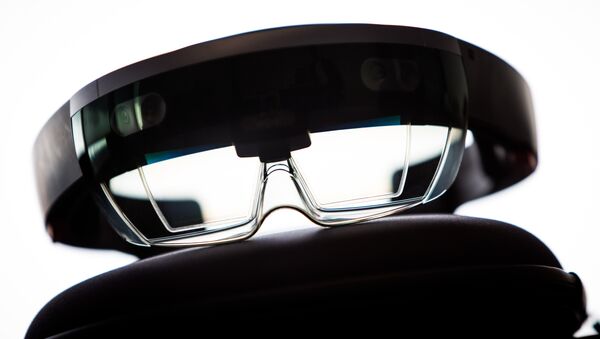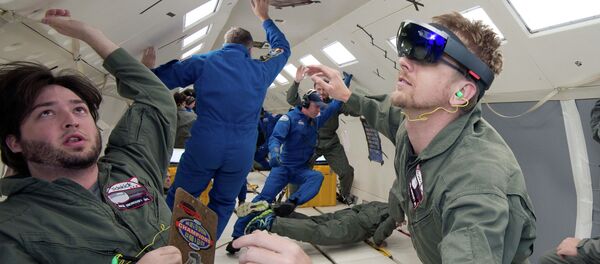The technology has been thrust into the spotlight this summer, with the advent of the viral hit sensation Pokemon Go, which layers virtual Pokemon characters on top of real environments seen through the player's phone camera.
Major Bashi indicated that the Israeli Army has seen the success of Pokemon Go, and want to emulate the technology, and its potential, for active duty tours.
"We connect all kinds of technologies and innovative concepts that come from the civilian world and try to adapt them as quickly as possible to military use," Major Bashi told Bloomberg.
Just got to try Microsoft Hololens and see a cyber security training demo at an Israeli military base #israel #tech pic.twitter.com/JX92n0vOVz
— Rami Reyes (@RamiReyesVC) June 21, 2016
The HoloLens headset works by projecting holographic images into the wearer's field of view, blending the computer-generated with the real.
The army hopes both headsets will be in the field in just a few months, to run through Middle East conflict scenarios to help develop strategy and anticipate possible threats.
Microsoft's HoloLens units are the company's attempt to cash in on the interest in virtual reality innovation.
They're available for developers and companies to snap up at $3,000 a unit.
So far, they are being used to help airlines train mechanics and flight crews; medical students to learn anatomy; and even the next generation of astronauts to reach for the stars.
But how exactly could a soldier use this virtual reality gear?
Major Bashi's team has already created an app that allows commanders to oversee troop positions from vantage points held by the enemy.
With the new HoloLens headsets, they will also be able to manipulate military terrain models and gain access to intelligence data.
Army medics would be given an extra aide when performing complicated surgery on wounded soldiers, through being able to watch and hear additional instructions provided by other trained surgeons.
If military equipment broke down, combat soldiers will be able to use HoloLens to fix malfunctioning parts.
And it's even expected to be used to provide data on the physiological state of soldiers while they're engaged in the field.
Not bad for $3,000.
Israel's announcement comes days after the UK Ministry of Defence said it too was investing in virtual helmets for its troops.
They will create an immersive environment in which pilots will be able to train on the ground, rather than in the skies, and even simulate air strikes.
It seems that for virtual reality technology, the sky's the limit.





